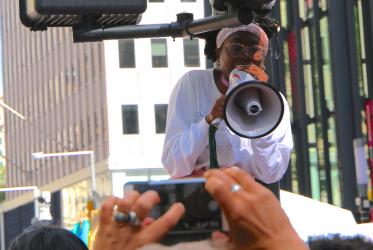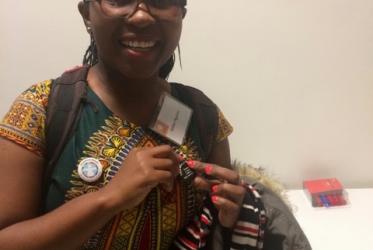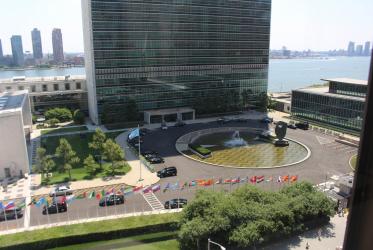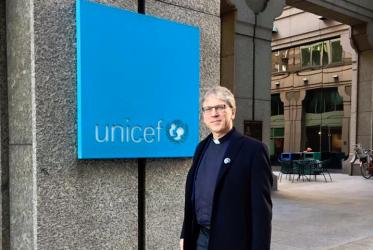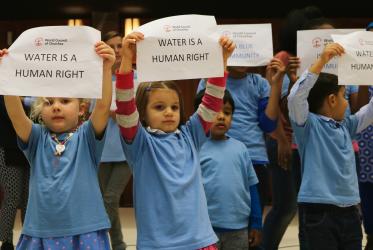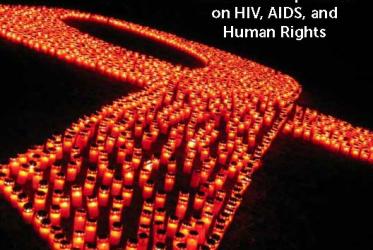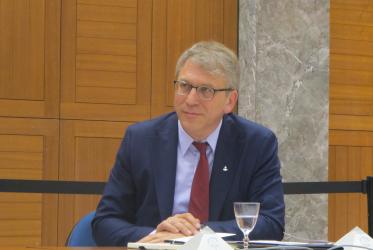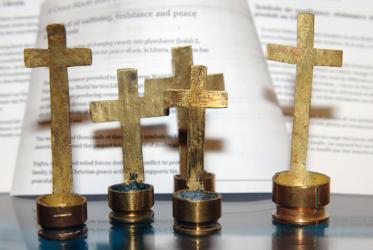Displaying 1 - 20 of 25
Dr Saïd Ailabouni: God is on the side of rejected, oppressed, occupied
12 September 2019
WCC pressing ahead with disarmament work
28 August 2019
How can you help refugees?
11 October 2018
Religious organizations speak up on refugee crisis at UN event
29 January 2018
Tveit: Beyond national borders, we are one humanity
23 January 2018
WCC to co-host public event on migration and displacement at UN
17 January 2018
Keeping the Faith in Development: Gender, Religion and Health
20 September 2016
Salvation Army Auditorium, New York City, United States
Colombia peace accord brings both joy and concern
19 August 2016
The new Arms Trade Treaty: a life-saving gift this Christmas
19 December 2014
